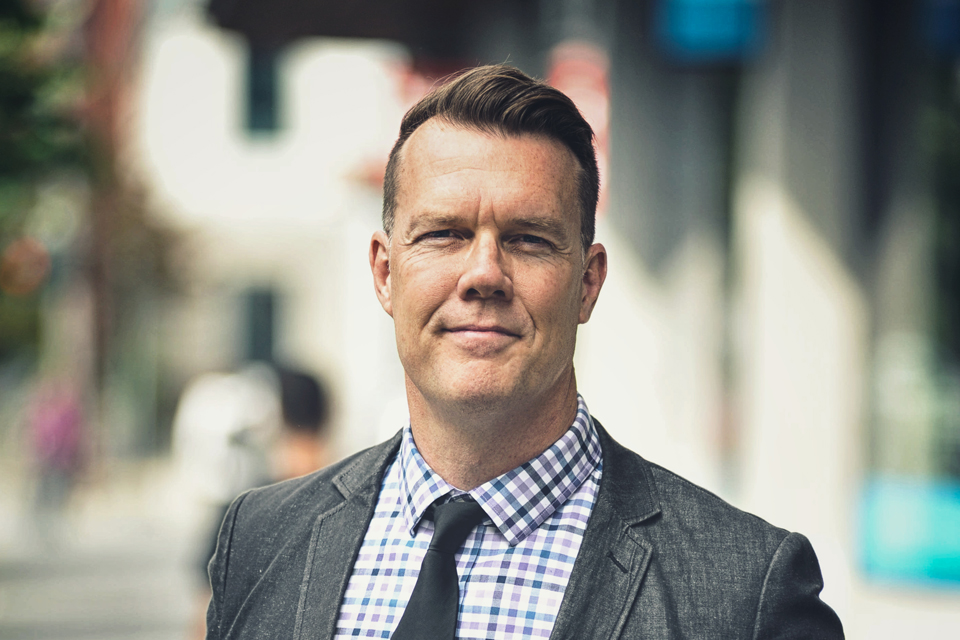Community-based research helping veterans and their spouses manage PTSD
- Suzanne Ahearne

A veteran’s post-traumatic stress disorder isn’t just their own; it’s their family’s too.
Tim Black, trauma psychologist and chair of the Department of Educational Psychology and Leadership Studies at UVic, has counseled veterans for nearly 20 years. In the course of helping men and women, many with post-traumatic stress disorder, transitioning to civilian life after serving in conflict zones, one of the common threads he heard was the fear of burdening their family with the invisible injuries from which they suffered. More than once a client said they wished a counselor could come home with them to explain everything to their spouse.
So, when a veteran and former veterans’ program participant of Black’s approached him with the idea of joining forces to hold PTSD workshops for veterans and their spouses, he didn’t hesitate.
COPE—Couples Overcoming PTSD EveryDay—was launched in 2015 by Black, Chris Linford, a Canadian veteran of 33 years, and his wife Kathryn Linford. This unique and expanding national program is helping veterans and their spouses learn to manage PTSD in the home. Black co-facilitates some COPE workshops and heads the research of COPE programs nationally.
COPE operates in two phases: a five-day group couples retreat followed by couples and family coaching. Initially, the couples work on improving communication skills, reducing shame, isolation and fear, and building the skills to fight PTSD together. For the next six months, the couples work with accredited family coaches to build skills needed to move forward as a family.
To date, COPE has helped 45 couples in New Brunswick, Alberta, Ontario and BC. A first pilot project for first responders was held in Calgary in late 2016. Facilitators receive three or four inquiries a day, mostly from spouses at their wits’ end after struggling for years with the injury. COPE’s major funder is Wounded Warriors Canada.
In Canada, veterans’ issues have often focused on Post Traumatic Stress Disorder and suicidality, as a result of military service. But, says Black, while we are intently focusing on these more clinical issues, we may be missing the bigger picture of struggles that military members face as they transition to civilian life.
Issues of identity loom large for many veterans as they attempt to “rejoin” a society that often fails to help veterans construct a sense of identity that helps them find their way in post-military life.
Home for good: We must honour living veterans https://t.co/yGbHLr2FPl @GlobeDebate
— The Globe and Mail (@globeandmail) November 23, 2016
In an opinion piece for the Globe and Mail, Black offered insights about what we can do as a society to help Canadian citizens who have served find their rightful place in society. He also proposes that as a nation we establish a day in the spring to honour all living veterans, including those who are ill and injured, for their service.
As a presenter at Forum 2016 in Vancouver—a conference of researchers, clinicians, students, military, veterans, first responders and industry—Black presented research evaluations and impacts of the first two years of this unique and expanding national program helping veterans and their families learning to manage PTSD in the home. The initial community-based research findings relate to the couples’ experiences of social support, loneliness and adjustment in their relationship. The forum in November was co-hosted by the Canadian Institute for Military and Veteran Health Research (CIMVHR), UVic and UBC as partner universities. Funded by UVic, eleven undergrad and graduate students were also able to attend the forum.
Coverage of this story includes Victoria News and CBC.ca.

